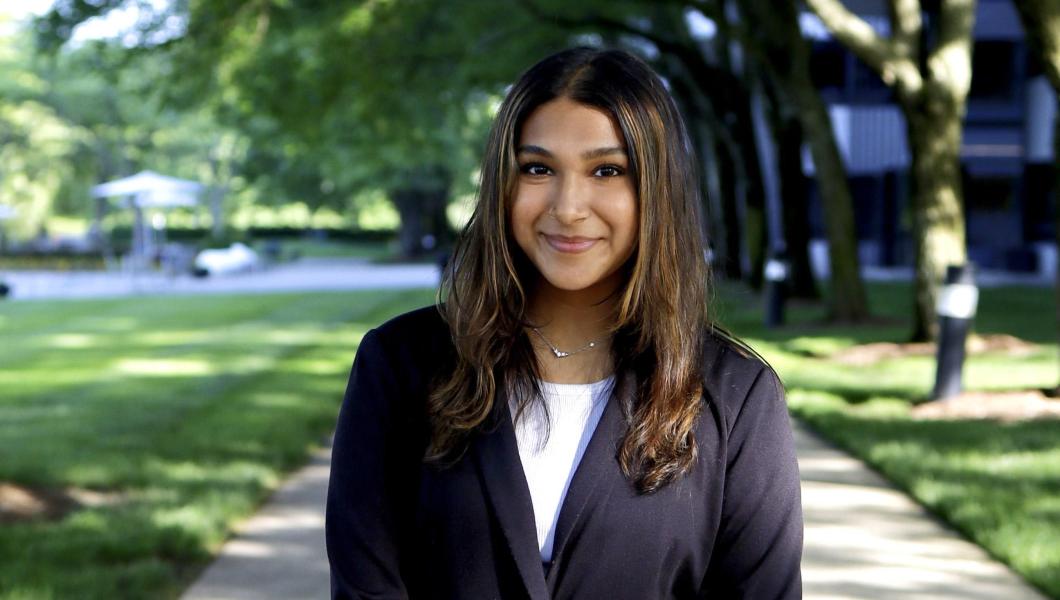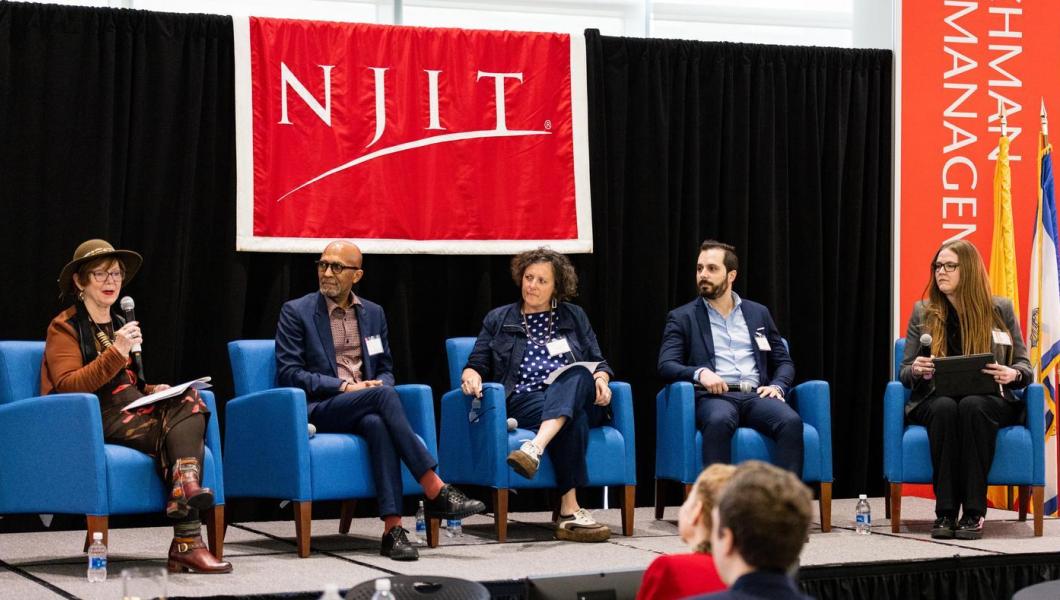To Engage Black Community, Computer Science Chair Reflects on Past

Among 13 children in a struggling Ivory Coast family, it would have been understandable if Vincent Oria went into business, apprenticed to a tradesman, or dreamed of the soccer pitch. Instead, long before becoming chairman of NJIT's Department of Computer Science, he followed his schoolteacher father into the world of academics, concentrating on physics as he loved the applied mathematics of science.
But there wasn't much opportunity for physicists in the West African nation of beaches and rainforests. A mentor suggested that he switch to computing as a pragmatic career alternative. He was awarded a scholarship to study in France and agreed to go after extensive persuasion from his school head.
Now, 30 years removed from doctoral studies at Télécom Paris, Oria's concentration is shifting again, this time temporarily away from his intellectual pursuit of database and multimedia systems and into the department leadership, with an extra focus on how to recruit Black students and faculty.
Three memories inspire him
First, he recalls an Ivorian proverb, "If you don't know where you're going, remember where you've been." Second, he thinks of people who doubted his ability, as he set out to prove them wrong. Third, there was his desire to be known as a good researcher, not just a Black researcher.
He can partially identify with American Black students. He's experienced his share of racism, though it happened only after leaving his home country. In his formative years, "I didn't go through the same issues that they went through, and I cannot say that I would be where I am currently if I grew up here. I was given some opportunities and I was lucky to have had a scholarship my entire time," he explained.
Oria has peers who were less fortunate and he knows how intelligent, hardworking students can easily be written off for circumstances beyond their control, such as not having the same educational resources as students from middle-class or wealthy locations.
"When we discuss about increasing the Black [student] population, there are two issues. Is it because we don't have too many applicants, that we don't have too many students here? And the answer's no. The applicants we get, too often they hear that they don't have the right background to get admitted. … The other issue is money."
For the faculty, Oria certainly wishes he could hire other Black professors, but he said it's a matter of competition.
"Even when I go to conferences I don't see that many [Black professors]. I see maybe one or two," he said. "Currently, when we have an ad for a position, we get people from Asia, we get women, and others … because you have a critical mass. You always find people who are qualified. We don't have a similar mass for the Black population. Even if you see one or two, if they are good, other [universities] will want them."
Working to enact change
Now empowered as the department chair, Oria hopes to affect change by advocating for NJIT's pre-college programs available to Newark children, becoming involved with professional associations for Black people in computer science, and engaging student leaders of minority clubs on campus, such as the Black Student Union and African Students Association. In the last 10 years, Black undergraduate enrollment at NJIT increased by 39%, now accounting for 10% of the undergraduate population.
There are numerous active programs on campus, and through Newark and the region, by which NJIT works to further raise the figures. One program, the Math Success Initiative, helps prepare Newark high school students for university-level math courses. Other programs include NJIT's acclaimed Educational Opportunity Program and Norma Clayton Learning Center. The university also recently hired its first Chief Diversity Officer.
Oria and NJIT President Teik C. Lim both want to do more. "The funding for these important initiatives will open more doors for more people, and will yield a better and more diverse workforce. Talent is everywhere, but opportunities are not — we are fixing that,” Lim said recently.
"Everybody needs a role model. Either you get it at home or through a teacher. Everybody has stories where they were inspired by a teacher," Oria said. "I remember going overseas for a conference. You have some minority Blacks there [but] when they saw me they asked what am I doing here? That comes from profiling. It is rooted in people getting scared. I think having Black faculty is a way to be role models for our students."
"We need diversity and we are in Newark where we have a lot of Blacks, but not on the faculty level or among the students and that is a problem," he continued. "I think talking about it, we cannot hide from it, we cannot say it doesn't exist. One way to do it, at least as an administration, is to welcome everybody. Make everyone feel comfortable regardless."
Even among trending technologies such as artificial intelligence, there is still discrimination, Oria noted. He gave the example of how AI software might advise that a neighborhood is good or bad, based on raw data such as income or crime.
Oria is currently reading two books — "Weapons of Math Destruction" and "Great Philosophical Objections to Artificial Intelligence". "Computer science is evolving," but computers have no instincts and they can't yet improvise, he said. Humans, he knows, can change for the better — "Human beings are nothing but good learning machines."

